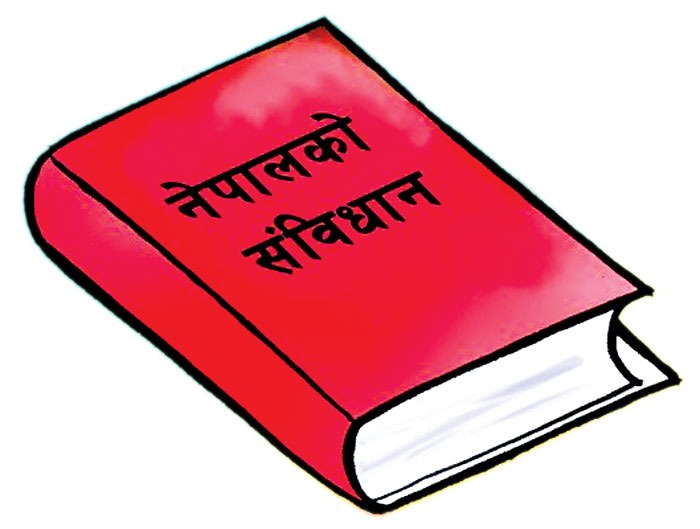
Ratan Karki’s Controversial Behavior: Legal Implications in Nepal
Ratan Karki has gained significant attention in Nepal due to his engaging content on platforms like YouTube and Facebook. His unique style, often infused with humor and casual Nepali expressions, has made him a favorite among many viewers.
However, recently, his behavior has sparked controversy, particularly after his Facebook Live session, where his comments seemed to incite violence against public figures, including former Prime Minister Khadga Prasad Sharma Oli.
While Ratan Karki is known for his bold opinions, which some fans find relatable and entertaining, his recent actions have raised serious concerns. It’s one thing for a content creator like Ratan Karki to freely express opinions, but when those opinions cross the line into promoting harm or violence, the responsibility becomes far more significant. His influence can either build or damage his public image, depending on how he chooses to use his platform.
During the final of the SAFF Women’s Championship held at Dasarath Stadium in Kathmandu, Ratan Karki went live on Facebook and made statements that indirectly suggested harm towards PM Oli. While such statements may reflect personal opinions, they carry serious legal consequences, especially when it comes to incitement or harm toward public figures. This raises an important question: What does the Nepali Constitution and the legal system say about such statements?
Legal Guidelines on Incitement to Violence in Nepal
Nepal’s legal system provides clear guidelines regarding speech that incites violence or harm to individuals, particularly public figures. These guidelines are found in several sections of the Nepal Penal Code, along with the Constitution of Nepal and other laws related to freedom of speech and public order.
Freedom of Speech: Constitutional Limits (Article 17)
Nepal’s Constitution guarantees the right to freedom of speech under Article 17. However, this right is not without restrictions. The Constitution allows limitations when speech threatens national security, public order, or an individual’s dignity, especially when the speech targets public figures like politicians. This balance ensures that freedom of expression doesn’t infringe upon others’ rights.
Incitement to Violence (Nepal Penal Code – Section 158)
According to Section 158 of the Nepal Penal Code, anyone who intentionally incites or attempts to incite others to commit violence can be charged with criminal offenses. This includes incitement to violence against an individual or a group, or even the state. If Ratan Karki‘s Facebook Live broadcast is found to suggest harm or violence towards PM Oli, it could be viewed as incitement under this provision, leading to potential legal action.
Defamation and Harm to Reputation (Nepal Penal Code – Section 310)
In addition to incitement, Section 310 of the Nepal Penal Code deals with defamation. It states that anyone who deliberately insults or harms the reputation of another person, through words, written statements, or any form of media, can face legal consequences. In the case of Ratan Karki, if his statements are seen as defaming PM Oli by undermining his dignity, it could result in a defamation charge.
Punishment for Incitement to Violence
The punishment for inciting violence can vary depending on the severity of the crime. According to the Penal Code, the punishment may range from imprisonment to fines, or both. For example:
- Imprisonment: Those found guilty of incitement may face a jail term that ranges from a few months to several years, depending on the nature of the incitement.
- Fines: In addition to imprisonment, the convicted individual may be required to pay fines.
If the incitement leads to significant harm, either directly or indirectly, the punishment could be even more severe.
Legal Procedures and Remedies
If someone feels threatened or harmed by such statements, they can file a complaint with the Nepal Police, and legal action may be initiated. In some cases, the authorities may also act suo-motu (on their own) to prevent the spread of harmful or inciting speech, especially if it endangers public safety.
Conclusion: Responsibility in the Digital Age
While Ratan Karki has the right to express his views, the legal boundaries of speech in Nepal clearly indicate that incitement to violence or harm is not permissible. Statements that suggest harm to others, particularly public figures, can have serious legal consequences under the Nepal Penal Code. If Ratan Karki’s Facebook Live broadcast is deemed to incite violence, he could face criminal charges.
This situation serves as a reminder that freedom of speech must be exercised with responsibility, especially in public forums like social media. Content creators, especially those with large audiences like Ratan Karki, must carefully consider the impact of their words on their followers and the broader public.
Sources:
- Judicial Decisions and Precedents on Incitement to Violence and Defamation
- Constitution of Nepal, 2015 – Article 17: Right to Freedom of Expression
- Nepal Penal Code (2074) – Sections 158, 310: Punishments for Incitement to Violence and Defamation
